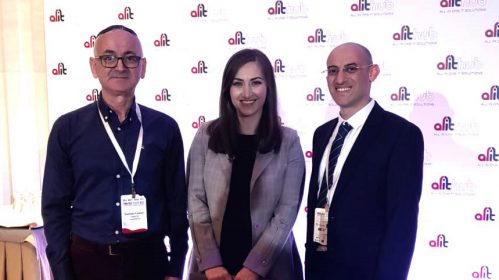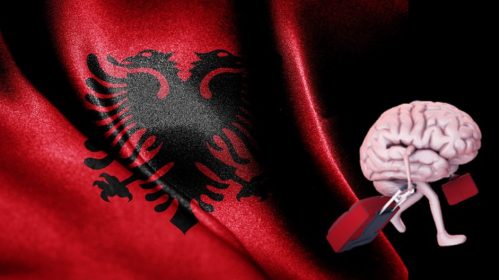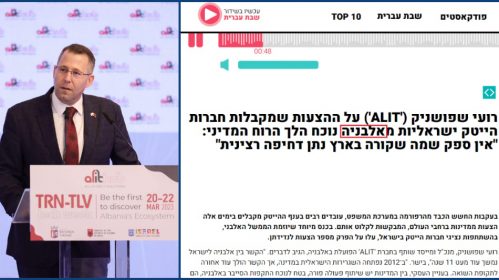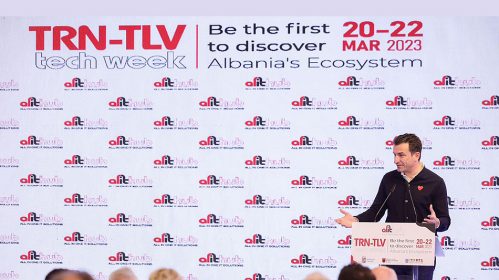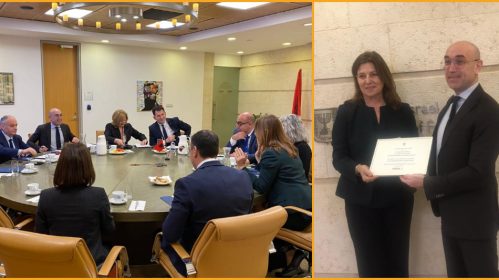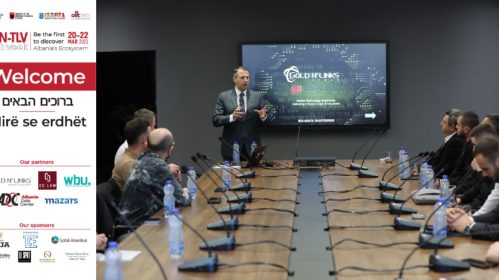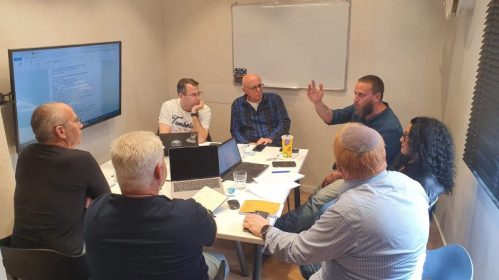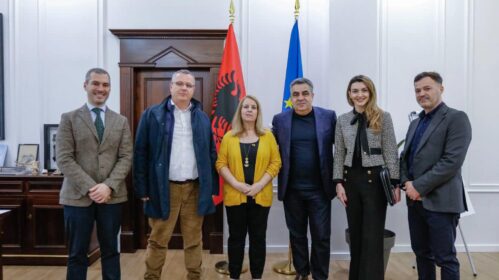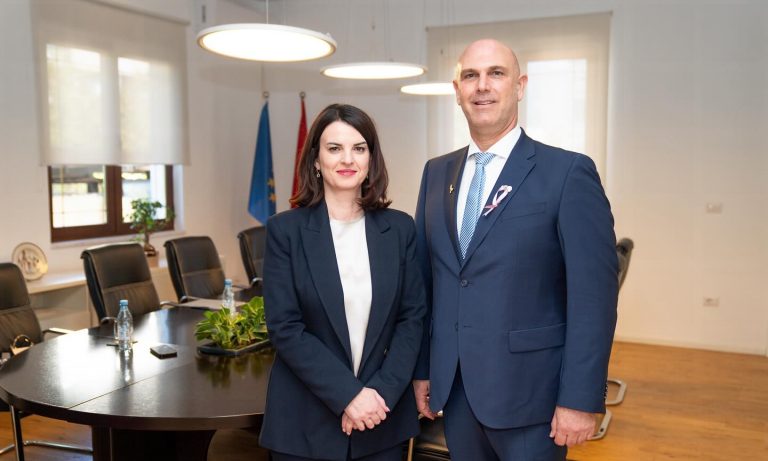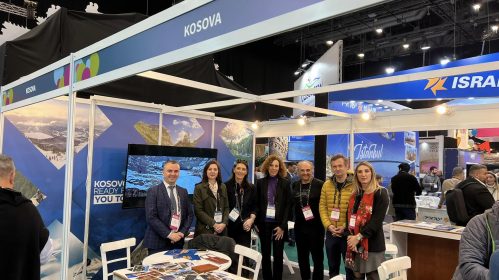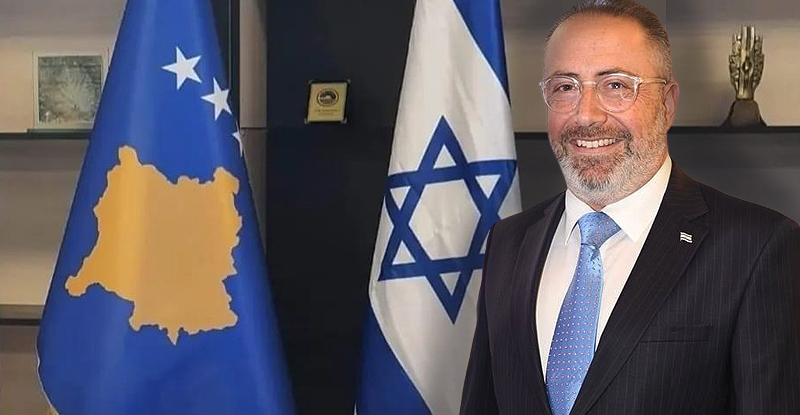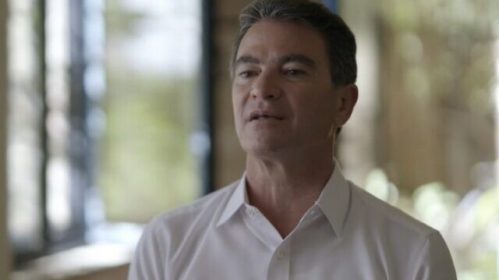Avirama Golan 28.04.2009
March 1999. Within days, tens of thousands of Kosovars fleeing the heavy-handed Serbs crossed the border into Albania. On the fifth day of the refugee crisis, the Jewish Agency sent over a plane loaded with food and blankets. Reporters from all the different Israeli media were invited to join the flight. The plan was to unload its cargo at the capital Tirana’s airport, tour the hastily erected refugee camps with a guide and return.
By evening, as the delegation was preparing to leave, the management of Tirana airport was urging them to hurry up and take off before nightfall, when emergency orders, calling for the airport’s closure for a few days, were scheduled to go into effect. I did not join the flight back, having found a room in one of the city’s two hotels and, with the help of French and British colleagues, also a translator and a driver who would take me to Kukes, on Albania’s northern border.
Since the satellite phone did not work and because the hotel’s communications system had broken down, I knew that if something were to happen to me, no one would inform my family. No one knew me here. Worried and exhausted, I fell asleep on a hard mattress between starched sheets in a foreign and frightened city that had just begun to open up to the world after years of extremist Communist seclusion.
At 4 A.M., my translator knocked on the door. He was a 24-year-old youth, who had been saved by the crisis from unemployment and hunger. He told me our driver was waiting. In a battered gray Mercedes, a 1960s model, we set out on a journey that – judging by the map – should have taken at most three hours. But the winding dirt roads, the ice-covered paths, the water running down from the snow-capped mountains and the rickety bridges turned it into a much longer trek. Shqiperia, or the “land of the eagles,” was dozing in the bluish rays of the sunrise; women dressed in black bent over dew-covered fields of corn and leeks, clearing stones with primitive rakes. The ugly, large and heavy bunkers Enver Hoxha, Albania’s paranoid dictator until 1985, had forced his citizens to build, stood out among the impoverished dwellings and the narrow road winding uphill. At 7 A.M., we made a rest stop at the “best restaurant” in the vicinity.
In the afternoon, as we approached the border, we started seeing them: a great many tractors towing covered wagons straining to climb the hill. Entire families were huddled in the wagons, covered with blankets and shivering from the cold.
There was no hotel in Kukes. The only modest hostel in town was packed with foreign correspondents, but the translator found us an apartment for $200 . It was in a housing complex that consisted of long and narrow cement buildings. Its occupants had at most one hour of electricity a day and they showered under a rusty pipe in a room that also doubled as a toilet. They greeted us with terrific warmth before they went off to sleep at their neighbors’. In the living room stood a glass-fronted buffet with neatly arranged cups decorated with red roses. It was their best-kept piece of furniture and standing on top of it was a copy of the Koran that was taken out of hiding just a few years earlier.
Shortly before dawn, the silence was shattered by shots. I got up, went outside and was greeted with a sight I will never forget: Every inch of the town’s huge municipal park was covered, as far as the eye could see, with tractors and wagons. The remains of small camp fires were still smoldering and in between them thousands of people were curled up in tents or sleeping bags, or just under blankets. There were young and old people, men and women, adolescents and children, and babies. They were whispering, as though they were afraid to disturb someone, stirring cooked food in pots and warming their freezing hands. Only yesterday they had had houses, and clothes, and beds.
I walked toward them slowly. My eyes filled with tears, and not because of the smoke. “Shall I ask for you,” I suddenly heard a voice behind me. It was my wise translator. “Yes,” I regained my composure. “Here, this woman is awake. Ask her what happened.” I opened my notebook and began writing: Kukes. Wednesday morning. A makeshift refugee camp.
Three hours later, at the border crossing, facing an armed and irate soldier and barbed wire, my satellite phone came back to life and I dictated an item to the newspaper’s typist.
https://www.haaretz.com/1.5044540





